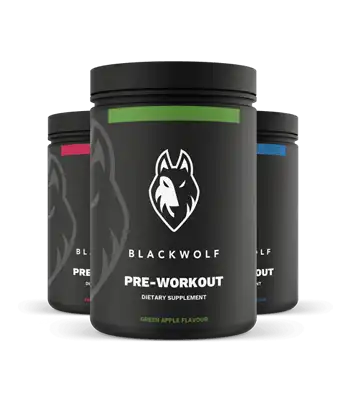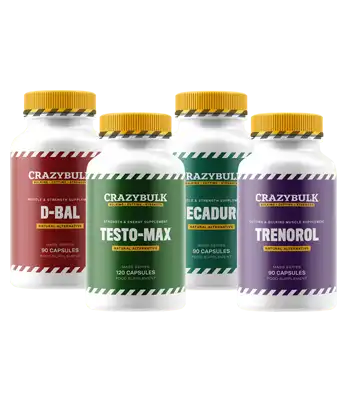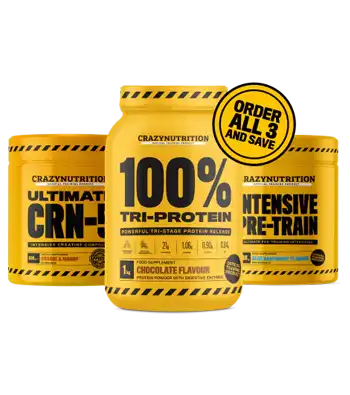What Is Chicken Breast?
Chicken Breast is a boneless cut of meat obtained on the pectoral muscle on the underside of the chicken. Each chicken contains two halves that are separated into individual breasts.
Chicken breast is relatively expensive as compared to other parts such as drumsticks, wings, or thighs as it has numerous health benefits. It is a great source of lean protein with low fat hence suitable for individuals interested in losing weight and building and maintaining muscle. With 80% of calories in Chicken Breast, only 20% comes from fat.
According to the United States Department of Agriculture, a serving of 120g of chicken breast contains 193 calories, 36 grams of proteins, 4 grams of fat, and 0 carbs.
Being a popular piece of meat, it is easy to cook and available in restaurants on different cuisines. It is prepared in various ways such as grilling, baking, roasting, or boiling. The nutritional content of chicken breast highly depends on how you prepare it and whether one eats the skin that contains the most fat.
Baking, roasting, boiling, and poaching are considered healthy options for cooking chicken breast since frying can increase the amount of fat and calories.
In a survey conducted by the National Chicken Council, among 1004 adults,89% of the individuals were more interested in getting more information about what they buy and eat while 57% preferred to have the information on the product package. Once provided with the information 62% agreed they would purchase more.
Chicken Breast Nutrition Facts
A single serving of chicken breast should be 3-4 ounces which is approximately the size of the palm or deck of cards. 4 ounces of raw boneless, skinless chicken breast is equivalent to 3 ounces when cooked. One 3-ounce (85g) grilled chicken breast contains approximately:
- Calories – 128
- Sodium – 44mg
- Sugars – 0g
- Protein – 26g
- Selenium – 24mcg
- Potassium – 332mg
- Zinc – 1mg
- Carbohydrates – 0g
- Fiber – 0g
- Vitamin B3 – 10mg
- Sodium – 44mg
- Iron – 1mg
- Fat – 2.7g
Worth noting most chicken breasts are sold skinless and boneless since most fat is contained in the skin. The exact nutritional value of a chicken breast depends on the size and whether the chicken was free-range, caged, or pasture-raised. Consuming a single breast may mean you are eating more than a serving.
Carbs
Like most poultry meat, Chicken breast contains zero starch and sugar unless when cooked with seasonings.
Fats
Skinless chicken Breast contains a very small amount of fat (4%) often less than 3 grams and unsaturated. On the other hand, the skin on chicken breast adds additional fat, calories, and protein.
A 3-ounce (85g) chicken breast with skin prepared by roasting, baked, or broiled contains 166 calories, 25 grams of protein, and 6.6 grams of fat.
Preparing your chicken breast in oil or adding sauce or margarine increases the total amount of fat, calories, and carbs. Olive oil contains both monounsaturated fat and polyunsaturated fats which are considered healthy fats.
The difference between monounsaturated fats and polyunsaturated fats from saturated fats is in the molecular structure, melting point, and viscosity.
Chicken contains unsaturated fats (healthy fats), that are linked with reduced risk of heart disease as compared to red meat.
The low-fat protein in chicken breast makes it suitable and advantageous in various diet programs such as the keto diet.
Protein
Chicken breasts are a great way to get lean protein into your diet. “For those who are trying to lose weight, adding in a higher level of protein, while keeping your carbs and fats a little lower is going to help you add muscle and lose fat.” says, Dan Gallagher, Registered Dietitian.
Proteins play an essential role in muscle building, organ function, enzyme function, bone strength, antibody production, DNA composition, growth, and repair of body tissue.
Dr Howard LeWine, an intern at Brigham and Women’s Hospital Boston, highlights in an article published by Harvard that on average the daily recommended protein intake is 0.8grams per kilogram of body weight.
This protein is regarded as complete as it is proportional to its amino acid content. Basically, it contains enough of the nine essential amino acids.
It is easily digested in the body as it is low in collagen, a protein that makes it hard to digest meat like steak.
Vitamins and Minerals
Chicken breast is a good source of phosphorus, vitamin B6, vitamins A, C, D, calcium, iron, zinc, selenium, and niacin. Niacin and B6 are responsible for cellular functioning while selenium is essential for thyroid function and in making the body’s DNA.
Vitamin B12 is essential in brain development, nervous system, memory, and mood. Phosphorus is essential for healthy bones, nails, and teeth.
“Phosphorus helps strengthen your teeth, which in turn helps prevent tooth decay, cavities, and brittleness”, says, Jerry Friedman, Doctor of Dental Surgery, North Jersey Oral and Maxillofacial. Potassium is beneficial for heart and muscle health.
Iron is useful in transporting oxygen to the cells and in women of childbearing age. Zinc helps maintain a healthy immune system, hair, skin, and nails.
Calories
80% of the calories in chicken breast come from protein and the remaining from fat. A single serving of 3-ounce chicken breast contains 128 calories.
Chicken breast calories contain low sodium and the amount of salt may be regulated depending on the method of preparation.
Health Benefits of Chicken Breast Nutrition
The nutrients in chicken breast offer many advantages making it suitable for various healthy eating plans. It can help with appetite control, bone health, muscle mass, mood, and sleep.
Strengthens Bones
Chicken breast contains minerals such as calcium, and phosphorus that keep bones strong and healthy
Maintains and Builds Muscle Mass
Chicken Breast is high in protein helping the body maintain muscle mass. An article in the Journal of the International Society of Sports Nutrition highlights that increasing consumption of dietary protein may result in favorable gains in muscle and strength during resistance training.
As one grows older, muscle mass and strength decrease, making it essential to prevent muscle loss. According to Lisa Richards, nutritionist, “Chicken is an excellent source of high-quality protein, essential for muscle growth, repair, and maintenance.”
The amino acids found in chicken breast help build muscle tissue and maintain bone mineral density, making chicken an excellent dietary choice.
Boosts Serotonin and Melatonin
Chicken breast contains tryptophan an amino acid that regulates protein synthesis. Tryptophan aids the brain in synthesizing serotonin. Serotonin commonly regarded as the “feel-good hormone” plays an important role in the regulation of cognition and mood.
Tryptophan mostly found in protein- foods, plays a significant role in melatonin production, the hormone that promotes sleep. It is also used in the diagnosis of conditions such as human cataracts, colon neoplasms, and renal cell carcinoma.
Reduces Appetite
Consuming protein increases the feeling of fullness, reducing food cravings. A study conducted on 27 overweight men who consumed higher protein meals demonstrated greater feelings of fullness and lower late-night desire to eat. A healthier weight reduces the risk of suffering from heart problems and high blood pressure.
Allergies
Allergies are not very common with poultry as compared to red meat. An allergic reaction to one kind of meat does not equate to being allergic to other meats.
Poultry allergy may be just a genuine food allergy or may result from a secondary food.
Adverse Effects
Chicken breast is an animal protein hence not suitable for vegetarians. Individuals with kidney disease are advised to consult a healthcare provider before consuming large quantities of protein. Consuming too much protein may mean a hard time for the kidneys to remove the excess protein.
It contains a small amount of cholesterol, hence if you are at high risk for heart disease or are on low – cholesterol it is crucial to pay attention to the amount of cholesterol in the meat you purchase.
It is important to note that the majority of commercially available chicken are not free-range or organic hence it is important to consider this if you struggle with hormonal imbalance, cardiovascular disease, or high blood pressure.
Varieties
Chicken breast in many groceries and stores is frozen and wrapped individually. It is important to always check the nutritional facts before purchase as they may contain more sodium. Some may contain marketing labels such as organic or antibiotic-free.
The U.S Department of Agriculture regulates the labeling and use of the following terms
- Free range: the agency must ascertain that the chicken has access to the outside. The chicken is not kept in cages but is free to participate in natural behavior.
- Natural: the label on the product must contain the statement natural which relates that no artificial ingredient or color was added and is minimally processed.Minimally processed means that the manufacturing of the product did not alter the product’s nutritional content.
- No hormones: The use of hormones in the rearing of poultry is not allowed hence the label “federal regulations prohibit the use of hormones” should be evidence in the parck.
- No antibiotics: the term antibiotics may be used on poultry product labels if sufficient documentation is provided by the producer to the Agency
- Organic: for the chicken to be labeled organic it must meet specific rules such as it must have been fed 100% organic feed.
Food Safety and Storage
Chicken meat should not be rinsed rather it should be thoroughly cleaned on a clean surface using clean utensils. Raw chicken can contain bacteria such as salmonella, or campylobacter that is contributed by illness.
It is advisable to cook chicken to at least 165 degrees to kill bacteria. If you eat undercooked chicken, you are likely to get a foodborne illness commonly known as food poisoning. CDC estimates that 1 million people in the United States get ill from eating contaminated poultry.
To reduce the risk of foodborne illness in chicken, the CDC recommends wrapping raw chicken in disposable bag packages and washing your hands before and after handling raw chicken.
Both uncooked and cooked chicken should be kept in a refrigerator in order to keep it free from bacteria and stay healthy for days. Chicken can be frozen for up to nine months without going bad. Raw chicken should be kept away from ready-to-eat foods like salads.
How to Prepare or Cook Chicken Breast
The way you prepare chicken breast can greatly impact its nutritional content. Healthier methods like roasting, broiling, poaching, or grilling limit fat intake. However, breading, frying in butter or oil, or adding condiments like barbecue sauce increases fat and calorie content. Choose cooking methods wisely to maintain a healthier meal.
 Conclusion
Conclusion
If you are down with meat from poultry, chicken breast is one of the best options. It contains a high level of lean protein, no carbohydrates, low fat, and low sodium minerals such as zinc and B vitamins. Incorporating chicken breast into meals can increase the feeling of fullness for longer periods promoting weight loss.
Despite being a versatile ingredient that can be baked, boiled, broiled, or pan-fired, the method of cooking your chicken breast counts a lot. Chicken breast fat and calorie content increases when deep fried.
Worth noting chicken breast does not contain any fiber hence it is important to always supplement your diet with fiber-packed food.
Finally, take some time to enjoy your chicken breast as part of a balanced diet along with other protein-rich foods.
Frequently Asked Questions (FAQs)
Q. What nutrients are chicken breast high in?
Q. Is it Okay and healthy to eat chicken breast daily?
On the other, eating chicken daily as your only source of protein could result in a nutrient gap since skinless chicken breast contains little fat. To ensure you are getting a good amount of healthy fats include a source of fat such as cooking chicken breast in olive oil or adding some avocado salad.








